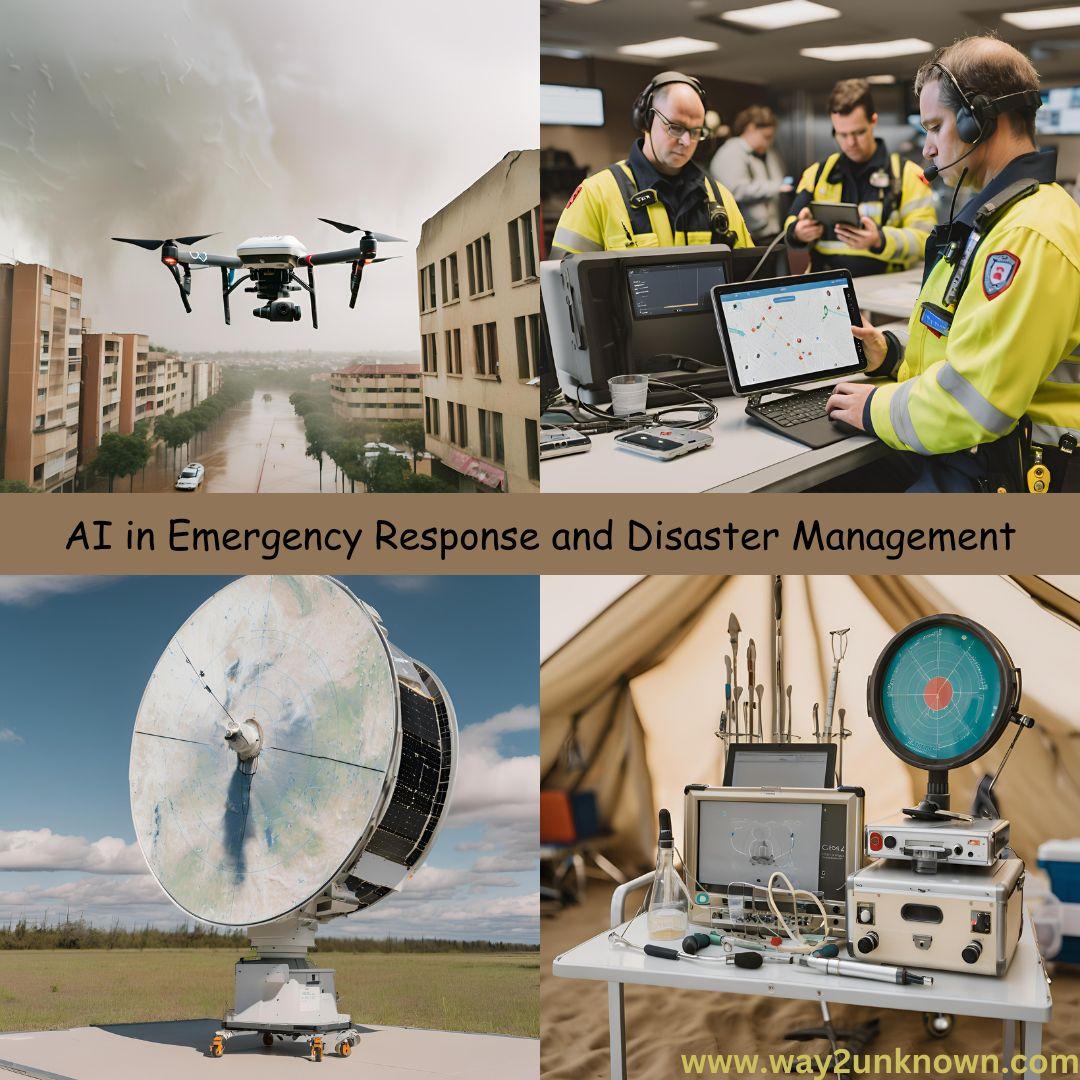AI in Emergency Response and Disaster Management

Artificial Intelligence (AI) is revolutionizing numerous sectors, and emergency response systems are no exception. The integration of AI can significantly enhance both the efficiency and effectiveness of these systems, leading to quicker, more accurate responses in critical situations.
One of the primary ways AI enhances emergency response is through improved data processing and analysis. AI algorithms can swiftly analyze vast amounts of data from various sources, including social media, emergency calls, and sensor networks. For instance, during natural disasters, AI can process satellite imagery and real-time weather data to predict the path and impact of events like hurricanes or floods. This predictive capability allows for timely evacuations and resource allocation, minimizing damage and saving lives.
AI also plays a crucial role in communication systems. Intelligent dispatch systems can prioritize emergency calls based on urgency and deploy the nearest available resources, reducing response times. Natural Language Processing (NLP) technologies enable AI to understand and interpret distress signals or emergency requests, even when they are not clearly articulated. This ensures that help reaches those in need without delay, even in chaotic situations.
Furthermore, AI enhances situational awareness for emergency responders. Through the use of drones and autonomous vehicles equipped with AI, real-time surveillance of disaster-stricken areas becomes possible. These AI-powered devices can navigate hazardous environments, providing live feeds and identifying survivors, all while keeping human responders out of harm's way.
Healthcare response during emergencies also benefits from AI. AI-driven diagnostic tools can assist medical personnel in triaging patients more effectively, ensuring that those who need immediate attention receive it first. Additionally, AI can help manage and predict the spread of diseases during epidemics, allowing for better containment and resource distribution.
In conclusion, the integration of AI into emergency response systems offers a transformative potential to enhance their efficiency and effectiveness. By leveraging AI’s capabilities in data analysis, communication, situational awareness, and healthcare, emergency responders can act faster and more accurately, ultimately saving more lives and reducing the impact of disasters.